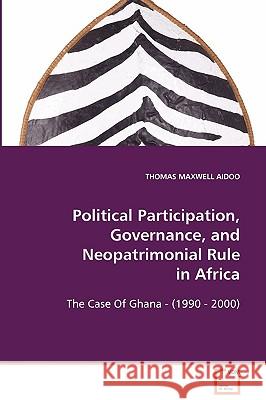Political Participation, Governance, and Neopatrimonial Rule in Africa » książka
Political Participation, Governance, and Neopatrimonial Rule in Africa
ISBN-13: 9783639079364 / Angielski / Miękka / 2008 / 280 str.
This tome deals with the democratic transitions in Africa, drawing on the Ghanaian experience of re-democratization in 1992. Ghanaian politics underwent a most rapid process of transformation between 1992 and 2000. Two developments, elites and mass struggles for political and economic incorporation respectively and external pressures, played a dominant in this process. In fine, the nature and extent of political participation in a neopatrimonial, albeit democratizing polity, is the subject of inquiry. The assumption that is advanced and tested is that political participation in Ghana is low, and that ingrained informal institutions of neopatrimonial governance bear a heavy, though far from exclusive, responsibility. The central position of the book is that neopatrimonialism delegitimizes the state and state power, and consequently, engenders an uncongenial environment for cultivating democratic involvement of the citizenry. We find that political participation beyond elections is low in Ghana, that informal institutions of neopatrimonial governance are deep-seated and pervasive and a strong correlation between neopatrimonialism and political involvement.











